印度建筑的减排潜力
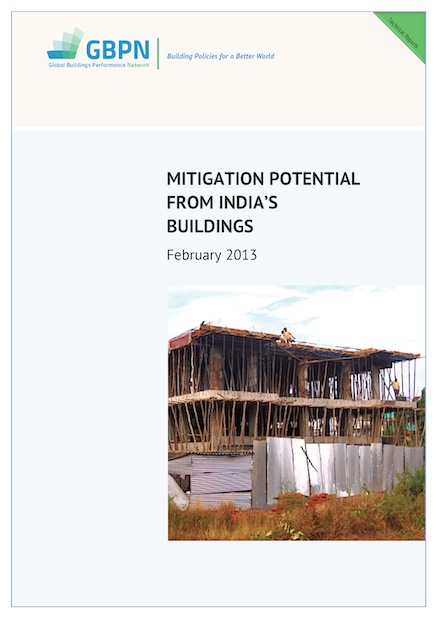 可靠证据表明,至2050年印度建筑领域会产生巨幅能源增长,基于此估测,本报告分析了印度目前建筑节能减排的政策框架及其节能潜力。
可靠证据表明,至2050年印度建筑领域会产生巨幅能源增长,基于此估测,本报告分析了印度目前建筑节能减排的政策框架及其节能潜力。
15 result(s) found
 可靠证据表明,至2050年印度建筑领域会产生巨幅能源增长,基于此估测,本报告分析了印度目前建筑节能减排的政策框架及其节能潜力。
可靠证据表明,至2050年印度建筑领域会产生巨幅能源增长,基于此估测,本报告分析了印度目前建筑节能减排的政策框架及其节能潜力。
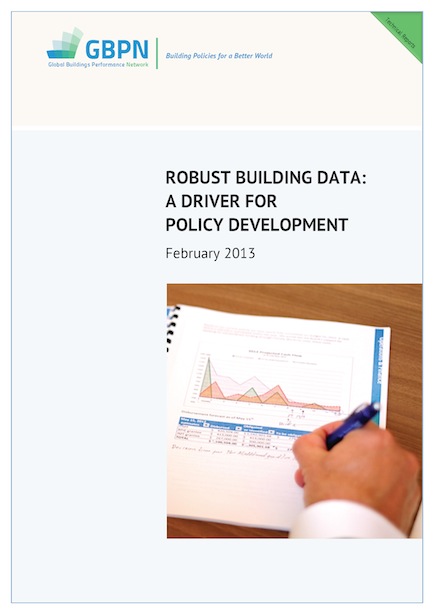 本报告就四个地区数据质量和数据的可利用性问题进行了分析,同时也提醒了我们需要完成多少工作才能建成一个强大而全面的建筑数据库,并提出了实现这个数据库的可行性建议。
本报告就四个地区数据质量和数据的可利用性问题进行了分析,同时也提醒了我们需要完成多少工作才能建成一个强大而全面的建筑数据库,并提出了实现这个数据库的可行性建议。
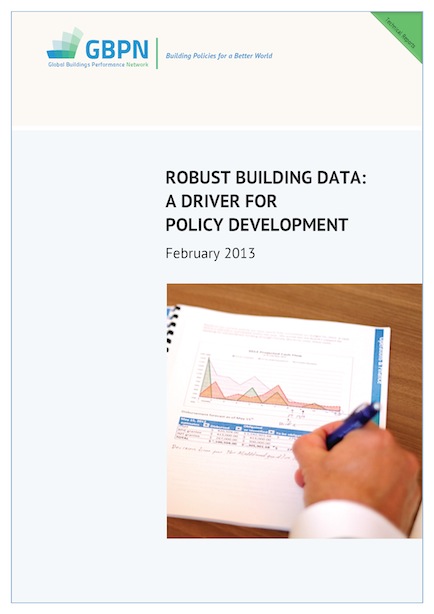 本报告就四个地区数据质量和数据的可利用性问题进行了分析,同时也提醒了我们需要完成多少工作才能建成一个强大而全面的建筑数据库,并提出了实现这个数据库的可行性建议。
本报告就四个地区数据质量和数据的可利用性问题进行了分析,同时也提醒了我们需要完成多少工作才能建成一个强大而全面的建筑数据库,并提出了实现这个数据库的可行性建议。
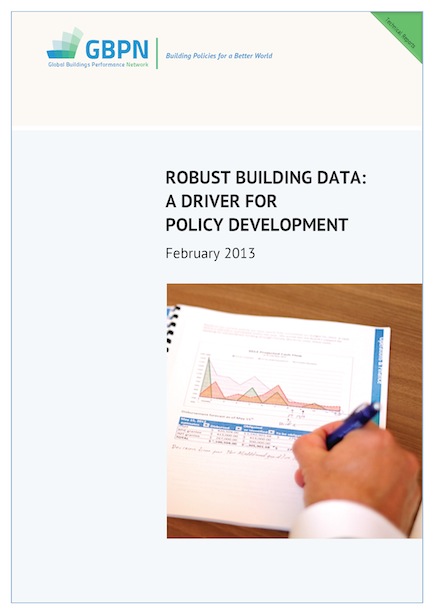 Data Annex
Data Annex
Discover where things stand regarding building energy data quality and availability in our four regions, this report reminds us of how far we have to go before a robust and comprehensive set of building data is in place and provides some recommendations of how we can get there.
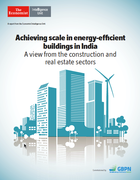 The Economist Intelligence Unit (EIU) report "Achieving scale in energy-efficient buildings in India: A view from the construction and real estate sectors" commissioned by the GBPN explains the challenges and opportunities of investing in energy efficiency in buildings in India.
The Economist Intelligence Unit (EIU) report "Achieving scale in energy-efficient buildings in India: A view from the construction and real estate sectors" commissioned by the GBPN explains the challenges and opportunities of investing in energy efficiency in buildings in India.
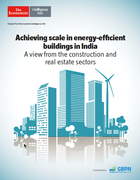 A report from the Economist Intelligence Unit (EIU), commissioned by the GBPN finds that while India’s commercial building sector has blazed the energy-effiency trail in the building sector, achieving significant scale will depend on efficiency measures becoming standard practice in the commercial middle market, retrofit and, particularly, the residential building segment.
A report from the Economist Intelligence Unit (EIU), commissioned by the GBPN finds that while India’s commercial building sector has blazed the energy-effiency trail in the building sector, achieving significant scale will depend on efficiency measures becoming standard practice in the commercial middle market, retrofit and, particularly, the residential building segment.
 Executive Summary
Executive Summary
GBPN conducted a study on the factors affecting the use of ESCO models for the retrofit of existing buildings in China, identifying current barriers to the development of the Chinese ESCO market, while also researching best-practice examples of ESCOs globally and investigating the feasibility of introducing those examples to China.
To date, greenhouse gas (GHG) emissions, mitigation strategies and the accompanying health co-benefits in different economic sectors have not been fully investigated. The purpose of this paper is to review comprehensively the evidence on GHG mitigation measures and the related health co-benefits, identify knowledge gaps, and provide recommendations to promote further development and implementation of climate change response policies.
Many recent major studies, including the IPCC’s Fourth Assessment Report, have attested that energy efficiency is humanity’s prime option to combat climate change in the short- to mid-term. The potential to avoid CO2 emissions cost-effectively has been reported to be significant through efficiency policies. However, the review of global research findings on the quantification of cost-effectiveness of opportunities through improved efficiency has highlighted that there is a major shortcoming in the vast majority of such calculations.
In European countries, buildings are the major energy consumers due to the general low energy performance of the existing building stock. To achieve the ambitioned targets for emissions reduction, it will be necessary to take actions for its large scale renovation. However, today's standards are mainly focused on new buildings, guiding the improvement of the energy performance of the existing buildings into expensive processes and complex procedures that seldom are accepted by users, owners or promoters.
A new analysis framework is developed and applied to assess the benefits of building energy efficiency policies and programs. One of the main advantages of the new energy productivity analysis is that it accounts for both economic and energy performances of energy efficiency actions using only one metric. Specifically, the approach applies the concept of energy productivity to the building sector and accounts for both value added and energy savings of energy efficiency measures.
The German government has developed a variety of policy instruments intended to reduce national CO2 emissions. These instruments include a programme administered by KfW bank, which aims at improving the energy efficiency of buildings. It provides attractive credit conditions or subsidies to finance refurbishment measures which improve the energy efficiency of buildings significantly. The refurbishment programme leads to a reduction in energy use, which benefits private investors by reducing their energy bills.